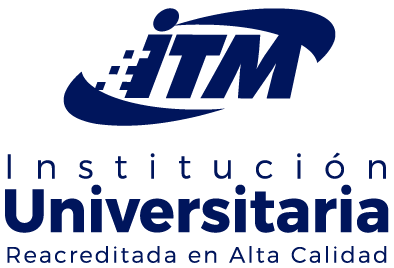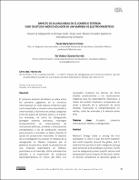| dc.contributor.author | Servín-Flores, Paula María | |
| dc.contributor.author | Cázares-Garrido, Ilia Violeta | |
| dc.date.accessioned | 2019-07-18T14:45:17Z | |
| dc.date.accessioned | 2019-08-01T22:23:54Z | |
| dc.date.available | 2019-07-18T14:45:17Z | |
| dc.date.available | 2019-08-01T22:23:54Z | |
| dc.date.issued | 2017-06-30 | |
| dc.identifier | https://revistas.itm.edu.co/index.php/revista-cea/article/view/648 | |
| dc.identifier | 10.22430/24223182.648 | |
| dc.identifier.uri | http://hdl.handle.net/20.500.12622/571 | |
| dc.description.abstract | El comercio exterior de México se ubica entre los primeros jugadores en el comercio internacional; en 2013 obtuvo el décimo lugar como exportador y noveno como importador a nivel mundial, y el primero en ambas categorías entre los países de América Latina y el Caribe. Los aranceles, tal como las salvaguardas protegen sectores concretos, restringen temporalmente las importaciones de mercancías idénticas, similares o directamente competidoras a las de producción nacional para prevenir o remediar un daño y facilitar el ajuste de productores nacionales. El objetivo de la investigación es conocer el impacto de la salvaguarda en México impuesta por el gobierno ecuatoriano, desde la perspectiva de una empresa exportadora en México, posiciones en el mercado, dicha sobretasa fue aplicada a la importación de productos electrodomésticos en marzo del 2015. Los resultados muestran los efectos de dicha medida proteccionista y las implicaciones negativas para los exportadores mexicanos, a través del análisis financiero comparativo de antes y después de la aplicación de dicha medida, mostrando el comportamiento en ventas, costo de aranceles y la relación entre ellos. | spa |
| dc.format.mimetype | application/pdf | |
| dc.language.iso | spa | |
| dc.publisher | Instituto Tecnológico Metropolitano - ITM | spa |
| dc.relation | https://revistas.itm.edu.co/index.php/revista-cea/article/view/648/669 | |
| dc.rights | https://creativecommons.org/licenses/by/3.0/deed.es_ES | spa |
| dc.source | 2422-3182 | |
| dc.source | 2390-0725 | |
| dc.source | Revista CEA; Vol 3 No 5 (2017); 41-57 | eng |
| dc.source | Revista CEA; Vol. 3 Núm. 5 (2017); 41-57 | spa |
| dc.subject | Ecuador | spa |
| dc.subject | comercio internacional | spa |
| dc.subject | México | spa |
| dc.subject | Salvaguardas | spa |
| dc.title | Impacto de salvaguardas en el comercio exterior caso de estudio México-Ecuador en una empresa de electrodomésticos | spa |
| dc.title.alternative | Impact of safeguards on foreign trade. Study case: Mexico-Ecuador appliancemanufacturing Company | eng |
| dc.type.spa | Artículos | spa |
| dc.subject.keywords | Ecuador | eng |
| dc.subject.keywords | international trade | eng |
| dc.subject.keywords | Mexico | eng |
| dc.subject.keywords | safeguards | eng |
| dc.type | info:eu-repo/semantics/article | |
| dc.type | info:eu-repo/semantics/publishedVersion | |
| dc.type | Articles | eng |
| dc.relation.ispartofjournal | Revista CEA | |
| dc.description.abstractenglish | Mexico's foreign trade is among the first worldwide. In 2013, it was the tenth exporter and ninth importer around the globe, and it took the first position in both categories among Latin American and Caribbean countries. Tariffs such as safeguards protect specific sectors and temporarily restrict imports of identical, similar or directly competitive to domestic goods to prevent or repair some damage and enable the adaptation of domestic manufacturers. The objective of this research is to establish the impact of the safeguards imposed by the Ecuadorian government from the perspective of a Mexican export company and its positions in the market. Said surtax was applied to the importation of electrical appliances in March 2015. The results show the effects of this protectionist measure and the negative implications for Mexican exporters by analyzingthe financial situation before and after its enforcement. Sales behavior, cost of tariffs and the relationship between them are described. | eng |
| dc.rights.accessrights | info:eu-repo/semantics/openAccess | |
| dc.type.coar | http://purl.org/coar/resource_type/c_6501 | |


